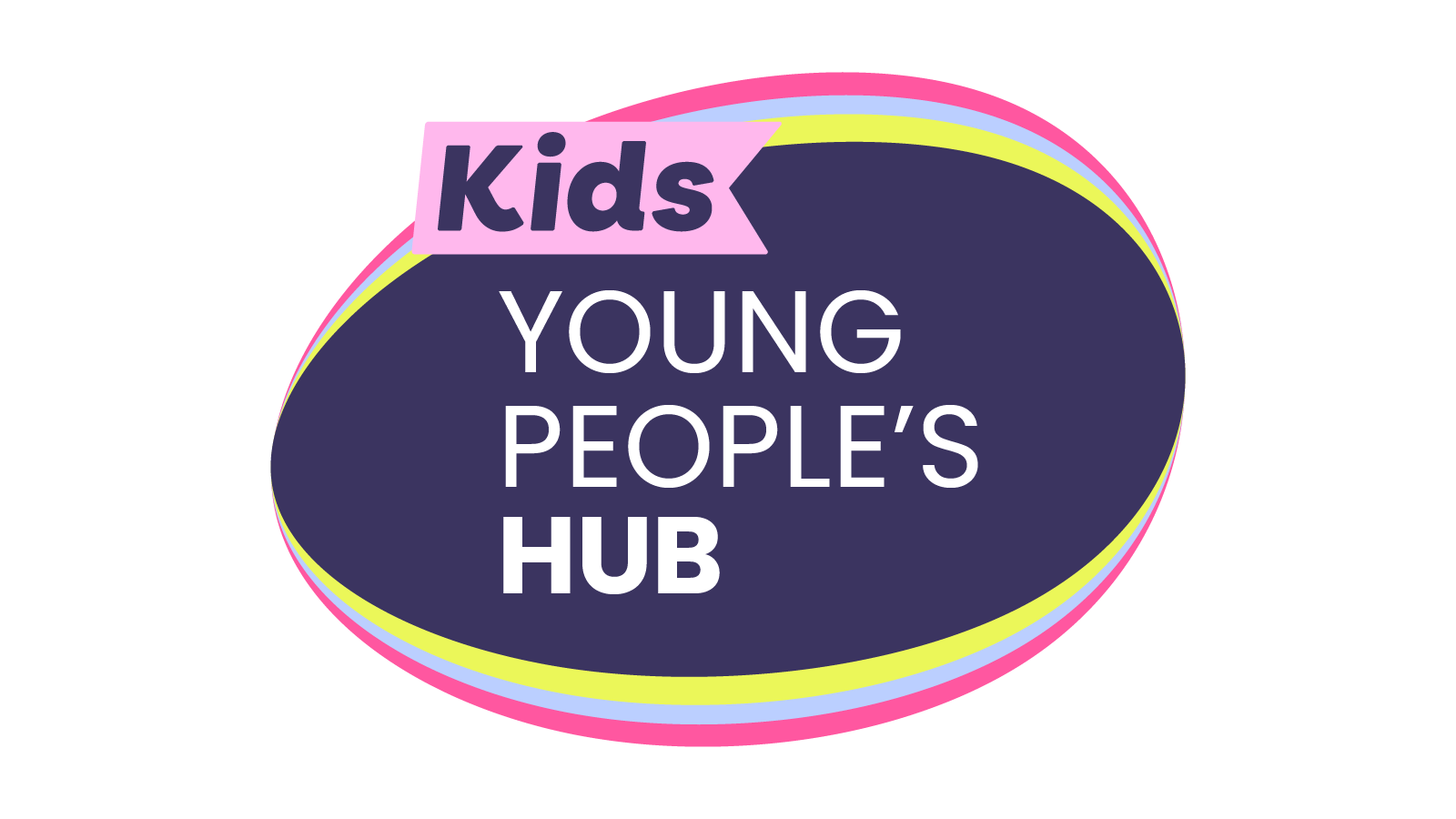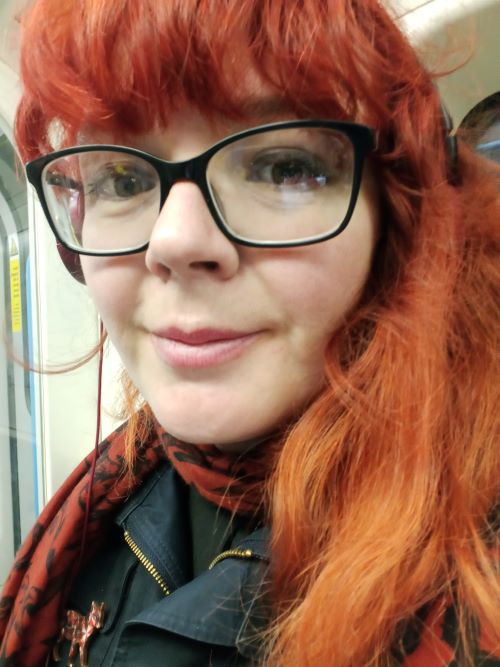We chatted with Lucy, a student at Exhall Grange Specialist School in Coventry, who was one of the participants in our ‘Hidden Disabilities’ film.
Lucy has additional hearing needs and shared her experiences of life with cochlear implants.
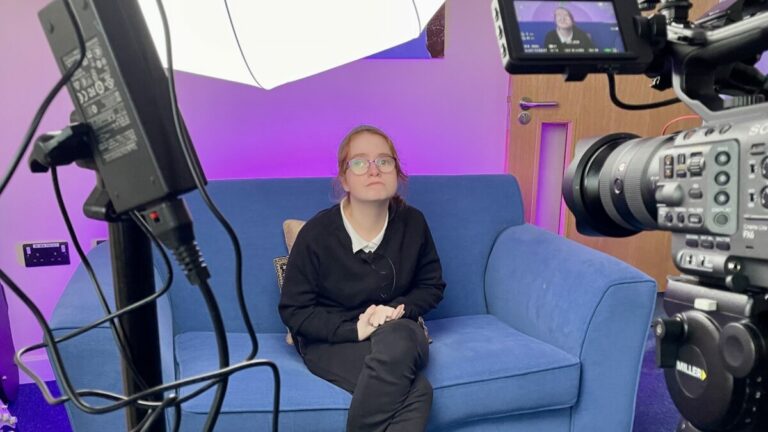
What did you want the film’s message to be?
I wanted to show people that you can’t be limited by your disability. It’s OK to be different and don’t care about what everyone thinks of you. Just know that you can be comfortable in your own skin.
After being part of the film as it affected your self-confidence or how you see yourself?
Yeah, it’s definitely boosted my self confidence a lot. I really enjoyed working on the project with everybody and everyone was just amazing with us. I mean, with most people they see our disabilities and they’re like ‘Oh’ and then they treat us differently. But the production team here didn’t.
“We want to reach people who’ve said harsh things in the past, and are on the brink of doing it again. We want to show them that it’s not okay.”
Lucy
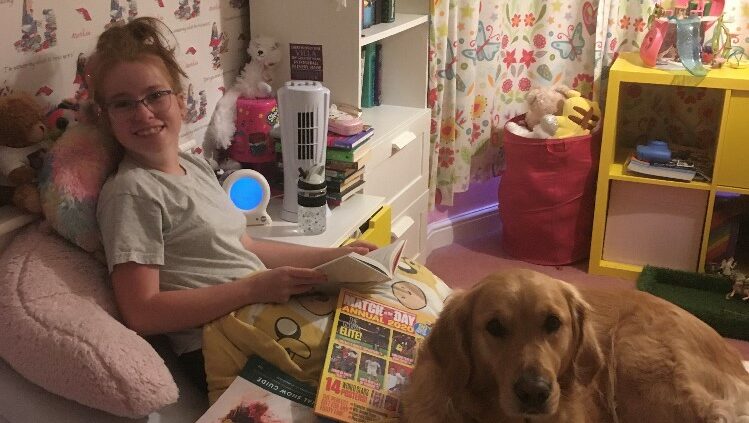
Do you still try to hide your disability, or have you changed your thoughts on this?
I still have these kinds of doubts sometimes. Like I don’t like it when people stare at my implants in public. But then again, maybe they’re just curious or something. Let them stare. I don’t care.
There are good days and bad days, and sometimes they are in-between days where it just filters between the two.
What part of making the film do you feel particularly proud of?
I feel really proud of how supportive everyone was of each other. Like every time we finished the scene we all clapped. And I think it helped people who were really nervous.
Was it difficult to have your friends act as the bullies?
No, not really for me. But Joe hated it. He didn’t like having to call me an attention seeker. He kept saying “But you’re so sweet and nice, I hate being horrible to you!”
And Joe normally doesn’t have a filter so we know it must’ve been hard to say those things! He wanted to look after me. And they all checked I was okay afterwards and that I wasn’t upset, so that was really nice of them. And I was like “Guys, I’m fine!”
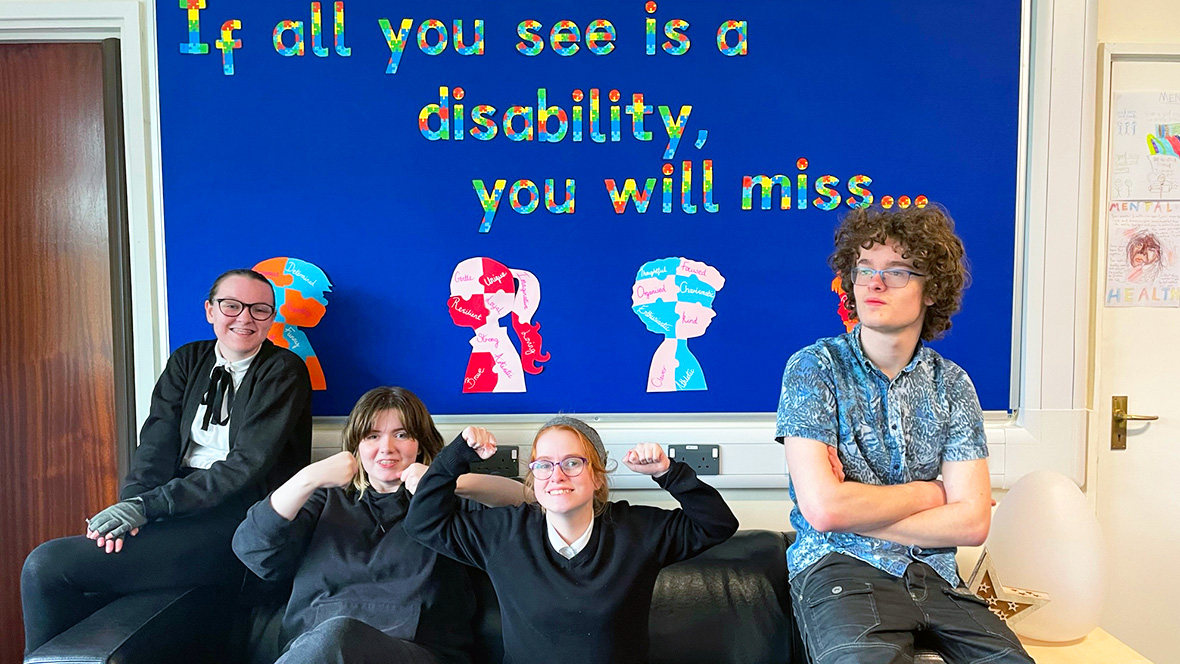
Were there any filming hiccups on the day?
Sometimes when I had to go through the doors. Because our director Matt was right behind me with the camera, he couldn’t give me the thumbs up to go. So I’d start walking and he wasn’t filming! We had to film those bits a few times! It was always the smaller scenes that caused the problems.
Did you enjoy talking straight to camera?
Yes, I really liked it. Sometimes when I’m bored I make videos on my iPad and just talk about random stuff to the camera. They’re just for me, I keep them to myself. But sometimes if I have a bad day at school, I can rant about my least favourite subject (which is science!). Or I talk about Doctor Who, because I’m a big fan.
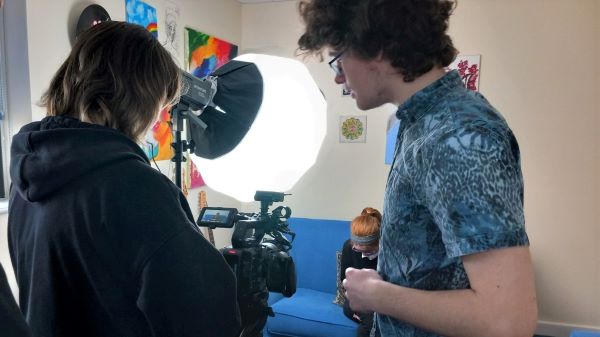
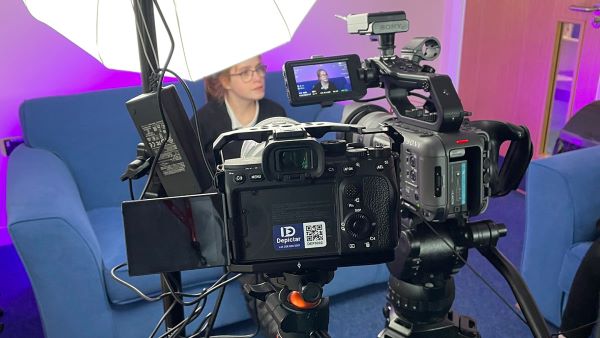
Did you write any of your script beforehand?
I sort of had an idea on what I wanted to say. With the way it was filmed, without an interviewer, I always had to include the question in my answer. So that had to be planned right at the start of the project.
For my little speech at the end, I wrote that myself. I kind of wanted that to resonate with people because, like I said, everyone is fighting an invisible battle. You don’t know what they’re going through, so the best thing to do is to stand by them, regardless, and be there for them.
And you’re still taking Media Studies, so that’s good!
Yes, it’s one of my favourite subjects. My teacher Mrs Stevens is really nice. And she goes, “Oh, how can I help you, Lucy?” She calls us all her little media scholars and her little fledglings. She goes “Fly little fledglings, fly!” I want to be writing for Doctor Who when I’m older.
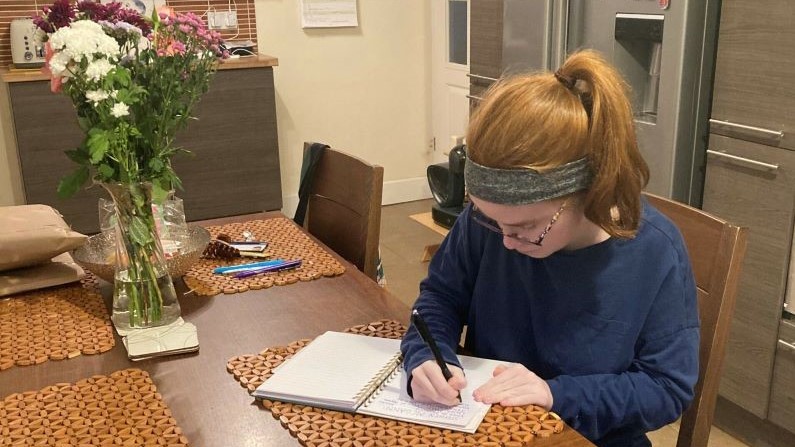
After watching the other film, have your perceptions changed about getting a job?
My brother has autism, too, and he’s currently got a job in digital marketing. So I think it was fairly easy for him to find a job. But since I’ve got a lot more needs than him then it might be harder for me.
But then, as I watched Megan’s interview I thought, well, maybe some businesses can be very accepting. And I know that some TV companies now like the BBC and ITV and Channel 4 can be really diverse. So maybe one day I’ll just take a chance.
What would you like the effect of this film to be?
That people stop and think before they speak, really. We want to reach people who’ve said harsh things in the past, and are on the brink of doing it again. Those repeat offenders. We want to show them that it’s not okay.
We want this world to be accepting and just full of life.
Live, laugh, love basically.
You can watch the Hidden Disabilities film here.
